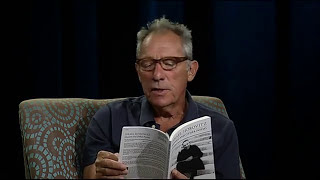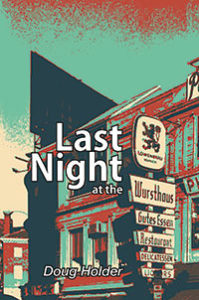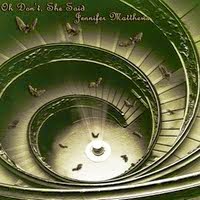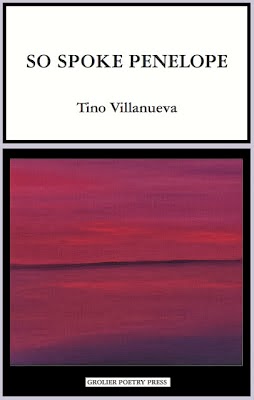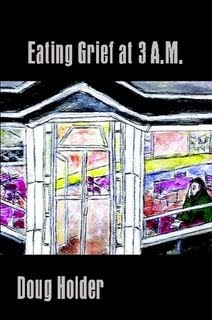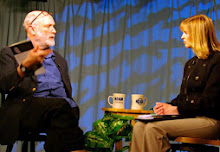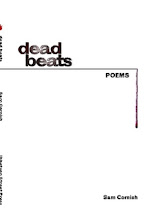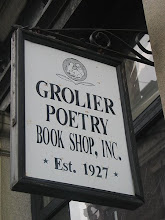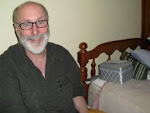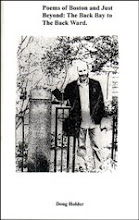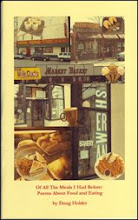
* This article came out 9 years ago in The Boston Globe. It was the lead article in the Living/Arts. I found it in my archives and typed it up because it is no longer online. It can be purchased from The Boston Globe archives.
THE BOSTON GLOBE: (Living Arts: Feb. 8, 2000.)
Poetic Healing: As the hospital and its clients have changed, counselor Douglas Holder adds another dimension.
By Michael Kenney (Globe Staff)
SOMERVILLE—In the fourth collection of poetry of poetry Douglas Holder has published at his Ibbetson Street Press here, he includes a poem of his own, titled: “ A Simple Nod.”
I saw him in Harvard Square,
happily walking with a friend.
As we passed each other
we exchanged a simple, understated
nod.
Our silence was a friendly conspiracy
a reminder of where he once was
and where he was
now.
The where is never stated—although two words, “the ward,” a few lines further on provide a hint. Holder, 44, is a mental health counselor, and for the past six years he has been conducting poetry workshops at McLean Hospital for its patients.
“ I’d been working there 17 years, and I’d had my poetry published in small journals,” he says. I wanted to add another dimension to my job and help a few folks out.”
While Holder would not think of ranking himself with Anne Sexton, who won the Pulitzer Prize for poetry in 1967, he does invoke the legendary poetry workshops she conducted at McLean in the late 1960s. Sexton, a patient at the Belmont hospital in 1973, committed suicide in October 1974.
Nor does Holder claim that the hospital today resemble the institution of those years. “It’s not like the old McLean,” he says, “with patrician types sitting around drinking tea from bone china.” That was the McLean of Harvard fullbacks, Porcellian Club members, and “ Mayflower screwballs.” That was the McLean that Robert Lowell, a frequent patient there in the 1960’s, memorialized in his poem “Waking in the Blue,” and that writer Susanna Kaysen, a patient in 1967, recalls in her best-selling memoir “Girl Interrupted,” now a major motion picture.
Today, Holder says, the members of his poetry groups are more likely to be the homeless “ coming in with a bit of doggerel.”
He runs two workshops, one on Thursday afternoons for patients in the hospital’s open-ward program, which meets in a converted Victorian mansion, and other Friday evenings for patients on two locked wards where Holder works. Neither is open to an outside visitor.
But whether in the mansion or in the more institutional setting of the locked ward, Holder says, “ I try to sort of have a coffeehouse atmosphere. We’ll have a round of applause when some reads a poem.”
Of course it doesn’t always work out as planned.
Holder remembers reading Allen Ginsberg’s “Howl” at his very first workshop.
“I was pretty enthusiastic then, and a bit naïve,” he says. I thought they’d like it. I saw the poem—with its lament about the “best minds of his generation lost to madness”—as a haunting cry that would be a catalyst for discussion.”
And he says with some self-deprecation, “ I thought they’d think of me as, “ Hey, this guy knows where I am coming from.”
Instead , “they were angry and one of them walked out,” he says. “And one of them told me: “Why do I have to hear this? I live with it.”
Another time, Holder says, a young woman became hysterical and ran out when he read a poem of his own about a kosher butcher in Brookline.
“It turned out the young woman had a painful experience in her life, which she associated with chickens, and she couldn’t take it,” Holder says. “ I had a lot of explaining to do with the clinical staff.”
“You never know,” he adds, “when you might hit a vein.”
The problem is compounded, Holder says, by the fact that today’s hospital stays tend to be shorter—a week or two instead of several months. “You don’t always know what to expect,” he says.
It also means that the workshops aren’t quite they were in Sexton’s day.
“I get in their face about it,” Holder says. “ I’ll go around to the rooms in my wards and ask: “Are you coming to the poetry group tonight?’
“And sometimes, I’ll have a doctor or another staff person tell me that so-and-so is a well-known writer, so I’ll make a special effort to get them to come.”
A number of poems written by patients in these workshops have been published—usually anonymously in the now defunct Boston Poet and other small poetry magazines. But not in his own magazine, which shares the name of his small press, Holder says, because that would violate hospital policy.
Because he believes that poetry can play a healing role, Holder started Ibbetson Street Press, out of house in Somerville—naming it after the street where he lives with his wife, Dianne Robitaille, a poet and geriatric nurse.
Holder, who got a master’s degree in literature from Harvard’s extension school while working at McLean, has been publishing his poetry in small magazines and especially Spare Change, the monthly journal for the homeless. “I write a lot about homelessness and mental health problems.”
Starting a small press to publish local poets, Holder says, was “ a way to get connected.”
The most recent issue—38 pages on 81/2 by 11 paper with a paper cover, bound with black slip plastic binder—sells for $4 and contains 40 poems; an interview with Ed Galing, an elderly small press poet; and several reviews.
Among the poets are a number of first-time writers and others described as “mainstays” of Holder’s press. There are also two professors of literature—John Hildebidle, who teaches at MIT, and Robert K. Johnson, who teaches at Suffolk University—as well as Don DiVecchio, the poetry editor of Spare Change.
Ibbetson Street Press has also published a number of chapbooks, and old English term for a small collection of poems or ballads, most recently: Poems From 42nd Street” by Rufus Goodwin, a poet and journalist who lives in Boston; and a collection called “ Poems for the Poet, the Working Man and the Downtrodden,” by A.D. Winans, who published a small poetry magazine in San Francisco.
“What distinguishes our journal,” says Holder, “is that it contains poems that anyone can read.” They deal “with everyday life. There’s not a lot of arcane words or funny verse patterns.” Anyone, he adds,” can get something out of them.”
The following is a poem written by an anonymous participant in one of Douglas Holder’s poetry workshops at McLean Hospital:
When The Hunter Arrived.
When the hunter arrived
at the place
where it was unfamiliar
he became the prey
stalked by everything
ever unleashed
by the conspiracy of creation.
to the edge he cantered
idols toppling by his sides
until at last
those that were against him
trusted his insight into their
essential nature
Finally pushing a hole through
God’s left eye
past what had separately
designed the limitless war
streaming beyond infinity.





